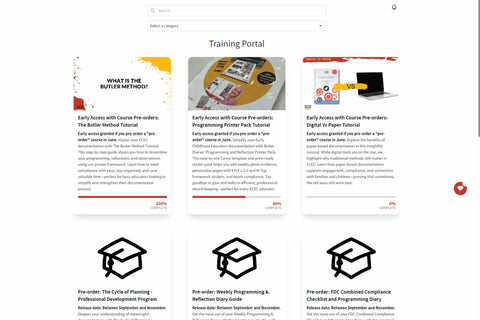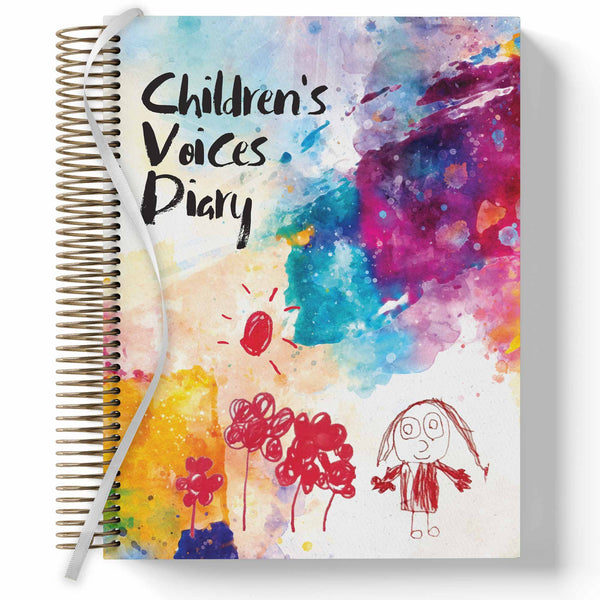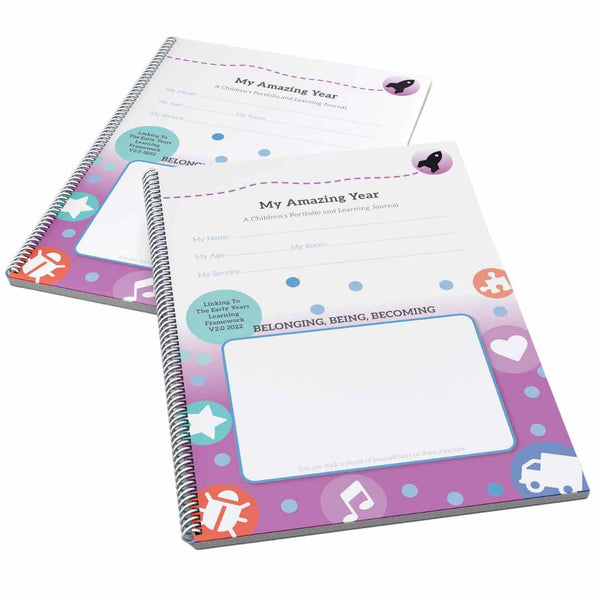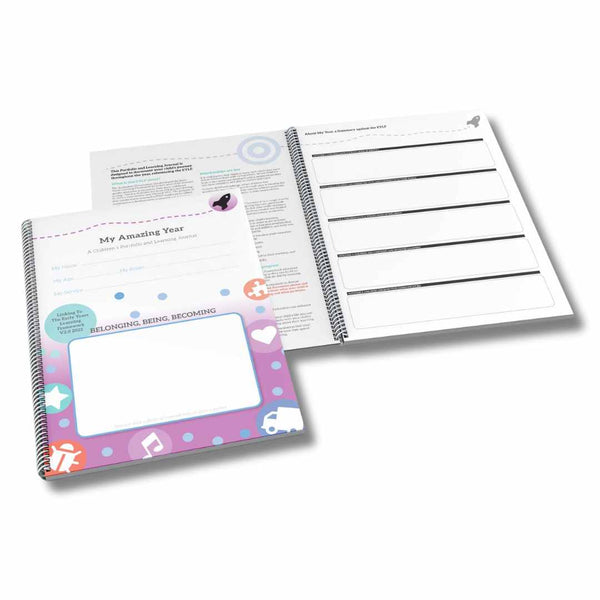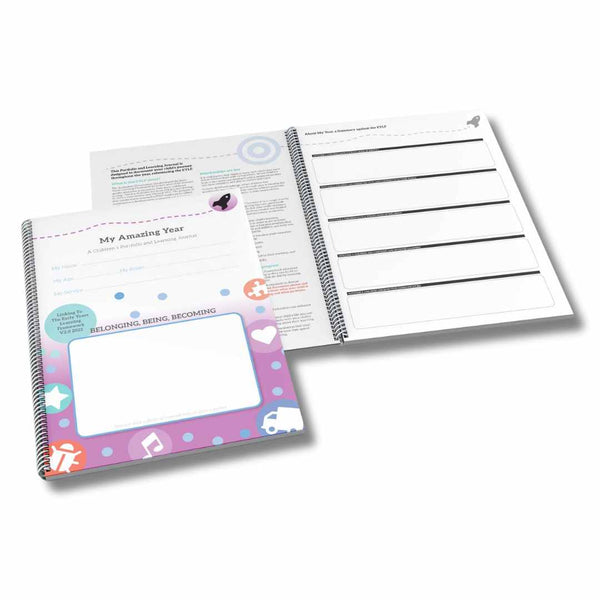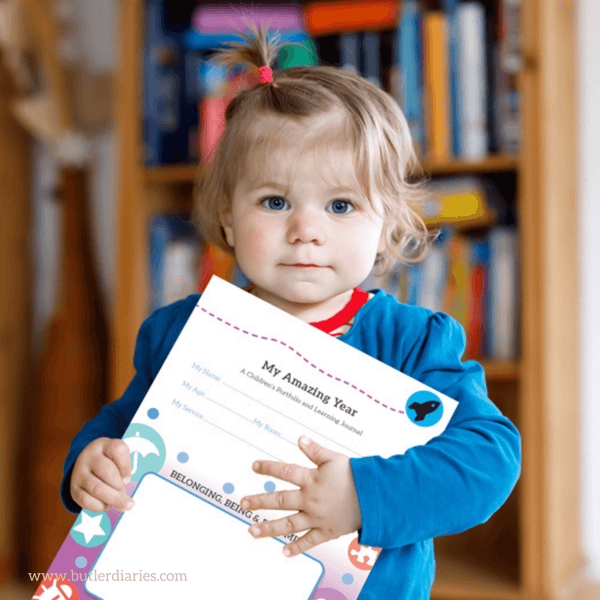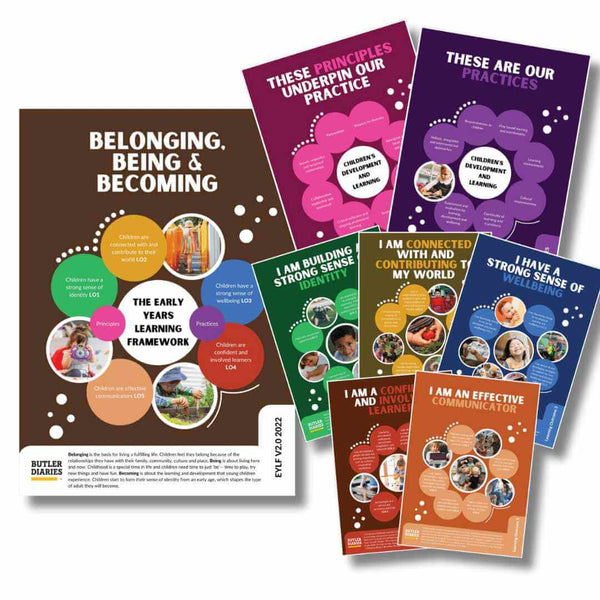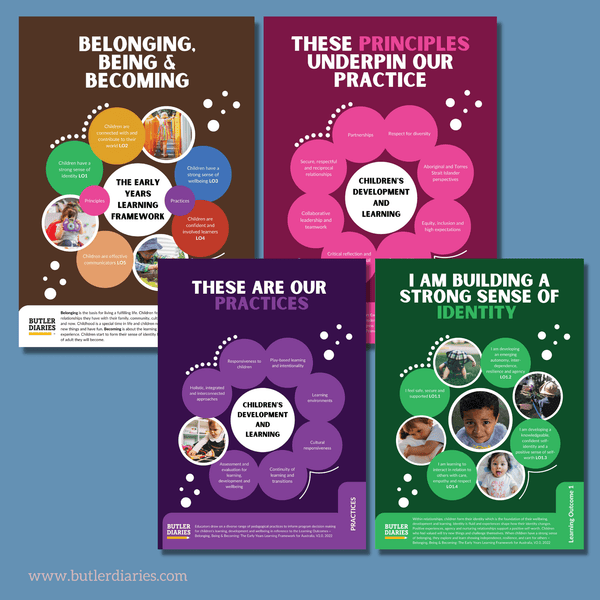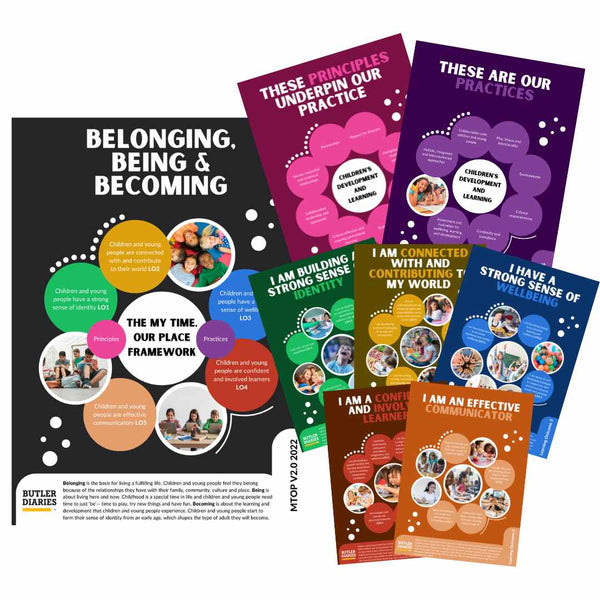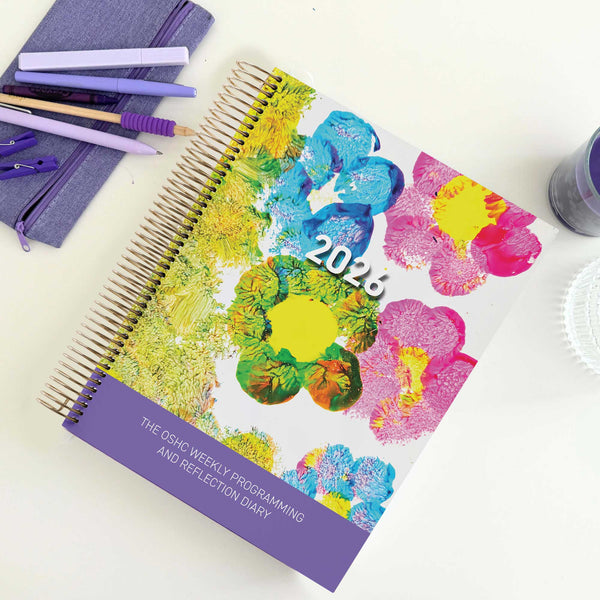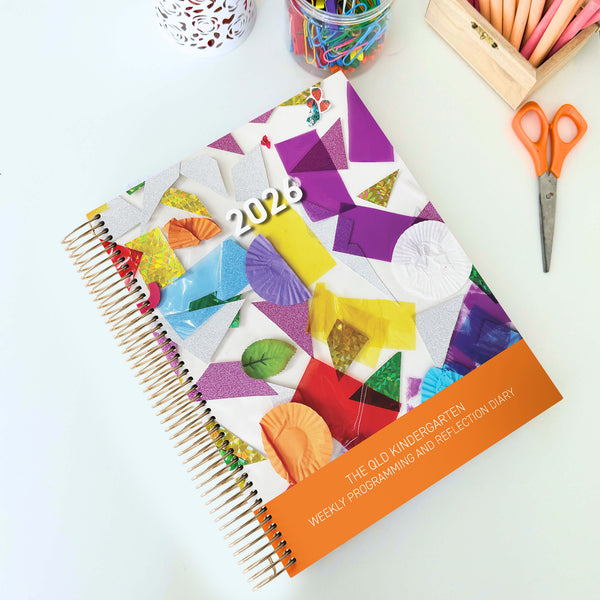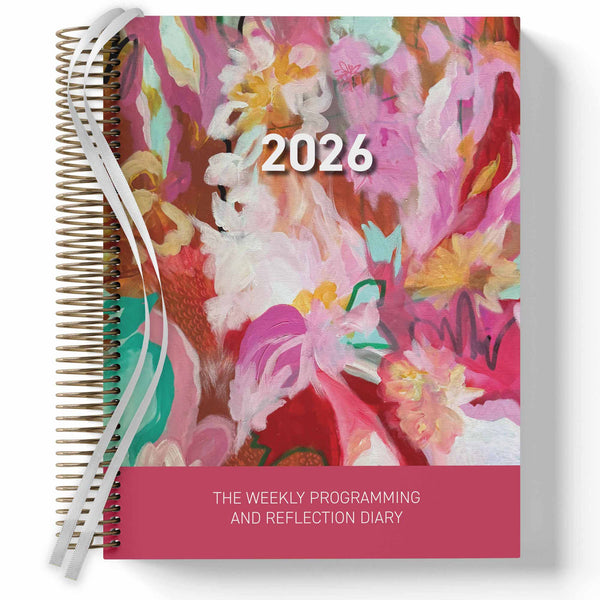In Early Childhood Education and Care (ECEC), fostering children's agency is a fundamental principle of the Early Years Learning Framework (EYLF) and My Time, Our Place Framework (MTOP). Encouraging children to express their thoughts, feelings, and reflections not only builds their confidence but also strengthens their sense of belonging and identity. The Children’s Voices Diary from Butler Diaries has been designed with this in mind, providing an engaging and structured way for children to document their experiences, thoughts, and aspirations.
A Diary Designed for Expression and Reflection
The Children’s Voices Diary is a valuable tool that allows children to record their daily experiences in a way that is both meaningful and developmentally appropriate. Each page is thoughtfully structured under the title My Day, where children can write their name and date before engaging with a series of reflection prompts. These prompts guide children through self-expression and self-awareness, helping them to articulate their emotions and ideas effectively.
The Power of Reflection Through Thoughtful Prompts
The Children’s Voices Diary includes a range of prompts that encourage children to reflect on their day, promoting both literacy and emotional intelligence. Let’s explore how each section supports learning and development:
-
What I enjoyed today – Encourages children to recall positive experiences, reinforcing gratitude and awareness of their interests.
-
Brainstorm – Sparks creativity by providing a space where children can jot down ideas, problem-solve, or plan activities.
-
How I feel today – Promotes emotional literacy, helping children identify and name their emotions.
-
I feel this way because – Supports self-awareness and emotional regulation, allowing children to explore the reasons behind their feelings.
-
What I did not like today – Validates children’s experiences by acknowledging challenges or frustrations, fostering resilience and problem-solving skills.
-
Meetings or discussion notes – Provides a space for children to document key conversations, making them active participants in group discussions or collaborative planning.
-
What I’d like to do in the future – Encourages forward-thinking and goal-setting, helping children to develop a sense of agency and aspiration.
Linking to the EYLF
The Children’s Voices Diary directly aligns with EYLF and MTOP v2.0 by supporting outcomes related to children’s identity, communication, and well-being. It contributes to:
-
Outcome 1: Children (and young people) have a strong sense of identity – By expressing their feelings and experiences, children (and young people) develop a deeper understanding of themselves and their place in the world.
-
Outcome 3: Children (and young people) have a strong sense of well-being – The diary supports emotional regulation and self-reflection, which are essential for mental and emotional well-being.
-
Outcome 5: Children (and young people) are effective communicators – Engaging in regular documentation builds literacy skills and encourages children (and young people) to articulate their thoughts in different ways.
Supporting Developmental Milestones
The Children’s Voices Diary plays a crucial role in supporting key developmental milestones across various domains:
-
Cognitive Development – Writing about their day helps children strengthen memory, recall events, and develop critical thinking skills.
-
Language and Literacy – Engaging with prompts enhances vocabulary, sentence structure, and storytelling abilities, laying a strong foundation for literacy.
-
Social and Emotional Development – Reflecting on emotions and interactions helps children build self-awareness, empathy, and emotional regulation skills.
-
Fine Motor Skills – Engaging in writing and drawing within the diary strengthens hand-eye coordination and pencil grip.
-
Sense of Agency – Encouraging children to express their preferences and future aspirations fosters independence and decision-making skills.
Informing Programming with the Children’s Voices Diary
Educators can use insights from the Children’s Voices Diary to inform programming in their Weekly Programming and Reflection Diaries and tailor experiences to children’s interests and needs. By reviewing children’s reflections, educators can identify emerging themes and plan engaging, responsive activities.
Examples of Using the Diary to Guide Programming
-
Interest-Based Learning: If multiple children express enjoyment in nature play, educators can plan an extended outdoor exploration activity or a gardening project in their Weekly Programming and Reflection Diaries.
-
Emotional Well-Being Support: If a child frequently expresses frustration with group activities, educators can introduce small-group or individual experiences to build confidence.
-
Enhancing Problem-Solving Skills: If brainstorming entries highlight curiosity about construction, educators can set up a loose parts play area for hands-on building experiences.
-
Encouraging Social Collaboration: Notes from meetings and discussions can help educators facilitate group projects, allowing children to collaborate on shared interests.
A Tool for Educators and Families
The Children’s Voices Diary is not just for children—it’s also a valuable resource for educators and families. Educators can use the diary to gain insights into each child’s thoughts, feelings, and experiences, which can inform programming and individualised support. Families, too, can use the diary as a bridge between home and the early learning environment, fostering deeper conversations about children’s daily experiences.
Encouraging Lifelong Reflection and Expression
By incorporating the Children’s Voices Diary into daily routines, educators can create a culture of reflection, communication, and self-awareness. This diary empowers children to share their perspectives, ensuring their voices are heard and valued. More than just a documentation tool, it nurtures essential skills that will benefit children throughout their lives.
Encourage your children to express themselves, reflect on their day, and build a lifelong love for self-expression with the Children’s Voices Diary from Butler Diaries.

